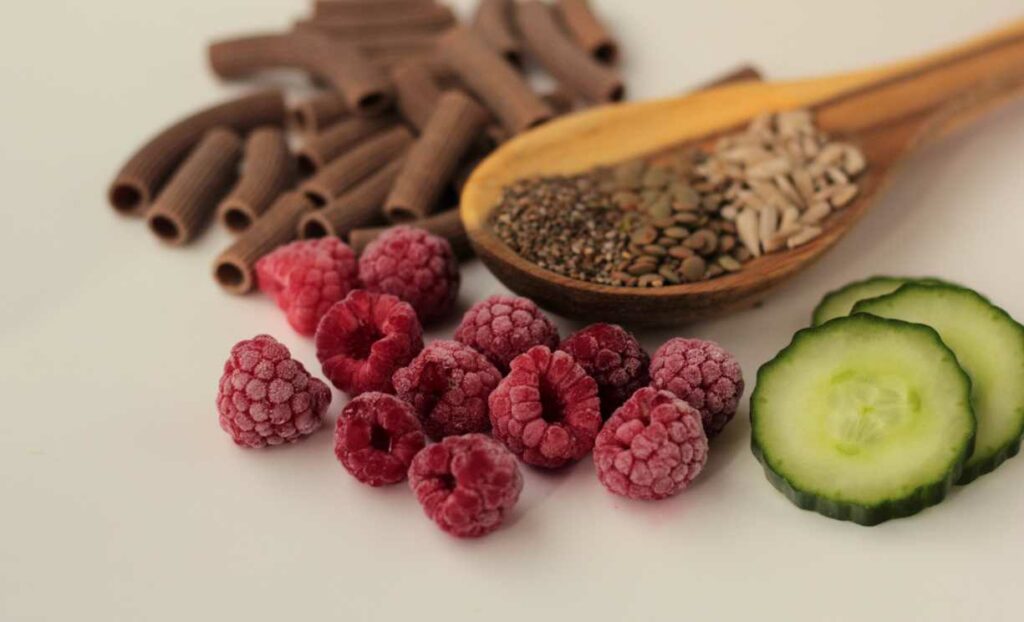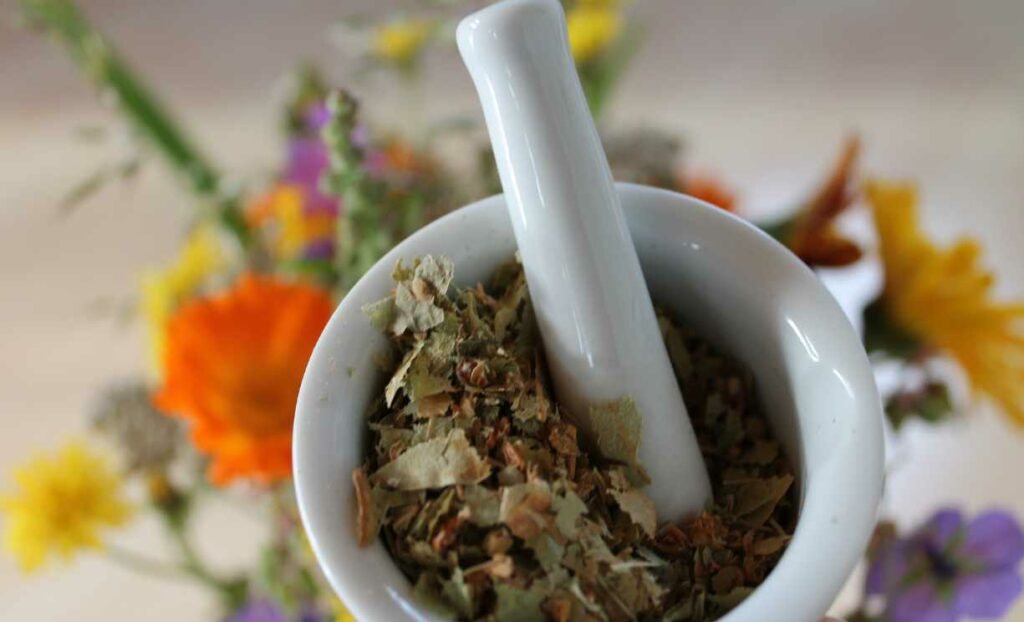Polycystic Ovary Syndrome (PCOS) is a common hormonal disorder affecting people with ovaries. Characterized by irregular periods, cystic ovaries, and hormonal imbalances, PCOS can impact fertility and overall well-being. While medical interventions are available, many individuals explore natural approaches to manage PCOS symptoms. Let’s delve into empowering, natural ways to treat PCOS and promote hormonal balance.
Contents
What Is PCOS?
Polycystic Ovary Syndrome, commonly known as PCOS, is a hormonal disorder that affects people with ovaries. In simple terms, it occurs when the ovaries produce higher levels of male hormones (androgens) than normal. This hormonal imbalance can disrupt the regular menstrual cycle, leading to irregular periods. Additionally, small fluid-filled sacs called cysts may form on the ovaries. PCOS often contributes to difficulties in conceiving, as it can interfere with ovulation.
Beyond reproductive challenges, PCOS can impact various aspects of health, including weight management and insulin sensitivity. While the exact cause of PCOS remains unclear, genetics and environmental factors play a role. Managing PCOS involves a holistic approach, including lifestyle changes, nutrition, and sometimes medical interventions, to restore hormonal balance and alleviate associated symptoms.
What Causes PCOS?
Can PCOS Be Completely Treated?
It is important to know, that while there is no cure for Polycystic Ovary Syndrome (PCOS), it can be managed effectively. PCOS is a chronic condition that requires ongoing attention to symptoms. With the right approach, which may include lifestyle changes such as a healthy diet and regular exercise, along with potential medical interventions, individuals can control and alleviate many of the symptoms associated with PCOS. These steps aim to regulate hormonal imbalances, manage weight, and improve overall well-being.
It’s important to work closely with healthcare professionals to create a personalized treatment plan tailored to individual needs. While complete eradication of PCOS is not currently possible, effective management allows individuals to lead fulfilling and healthy lives. Regular monitoring and adjustments to the treatment plan can help individuals with PCOS maintain their well-being over the long term.
Natural Ways To Treat PCOS
Here are some natural ways to treat PCOS:
- Balanced Nutrition: Adopting a balanced and nutritious diet is crucial for managing PCOS. Focus on whole foods, including fruits, vegetables, lean proteins, and whole grains. Limit processed foods, refined sugars, and excessive carbohydrates, opting for a diet that supports hormonal balance.
- Regular Exercise: Engaging in regular physical activity helps regulate menstrual cycles, improve insulin sensitivity, and support weight management. A combination of cardiovascular exercises, strength training, and activities like yoga can contribute to overall well-being.
- Weight Management: Maintaining a healthy weight is particularly important for individuals with PCOS, as excess weight can exacerbate symptoms. Gradual, sustainable weight loss through a combination of diet and exercise can positively impact hormonal balance.
- Herbal Supplements: Some herbal supplements, such as spearmint tea and cinnamon, have shown promise in managing PCOS symptoms. However, it’s essential to consult with a healthcare professional before incorporating these supplements into your routine.
- Inositol Supplementation: Inositol, a compound similar to B vitamins, has been studied for its potential to improve insulin sensitivity and ovarian function in individuals with PCOS. Consult with a healthcare provider to determine the appropriate dosage.
- Mind-Body Practices: Stress management through practices like meditation, mindfulness, and deep breathing can positively influence hormonal balance. These mind-body techniques contribute to overall well-being and may help alleviate PCOS symptoms.
- Adequate Hydration: Staying well-hydrated is essential for hormonal regulation. Choose water, herbal teas, and infused water with fruits and herbs to support hydration.
- Avoid Endocrine Disruptors: Minimize exposure to endocrine-disrupting chemicals found in certain plastics, pesticides, and cosmetics. Opt for natural, chemical-free products when possible to reduce potential hormonal interference.
- Regular Sleep Patterns: Prioritize consistent and sufficient sleep. Quality sleep is crucial for hormonal balance and overall health. Aim for 7-9 hours of sleep per night.
Herbal Remedies For Managing PCOS
Here are some herbal remedies known for their potential to naturally manage PCOS symptoms and promote hormonal balance:
- Spearmint Tea: Spearmint tea has been studied for its potential to reduce androgen levels in individuals with PCOS, which may help manage symptoms such as excess hair growth and acne. Drinking a cup of spearmint tea daily is a simple way to incorporate this herbal remedy into your routine.
- Cinnamon: Cinnamon is known for its potential to improve insulin sensitivity. Adding cinnamon to your diet, whether sprinkled on oatmeal or incorporated into a warm beverage, may contribute to better blood sugar regulation and overall metabolic health in individuals with PCOS.
- Licorice Root: Licorice root is believed to have anti-androgenic properties, making it potentially beneficial for managing symptoms related to elevated androgen levels, such as hirsutism. However, it’s crucial to use licorice root cautiously and under the guidance of a healthcare professional, as excessive consumption can lead to side effects.
- Fenugreek: Fenugreek seeds may help regulate menstrual cycles and improve insulin sensitivity. You can incorporate fenugreek into your diet by adding the seeds to dishes or using fenugreek supplements after consulting with a healthcare provider.
- Saw Palmetto: Saw palmetto is commonly used for conditions related to androgen excess, such as hirsutism. While more research is needed, some studies suggest that saw palmetto may help reduce hair growth in individuals with PCOS.
- Chasteberry (Vitex): Chasteberry, also known as Vitex, is a popular herbal remedy for hormonal balance. It may help regulate menstrual cycles and alleviate symptoms associated with PCOS. Consult with a healthcare professional for appropriate dosages.
- Dong Quai: Dong Quai, a traditional Chinese herb, is thought to support hormonal balance and regulate menstrual cycles. However, its use should be approached cautiously and under the guidance of a healthcare professional.
Conclusion
In conclusion, embracing natural ways to treat PCOS offers a holistic and empowering approach to managing this hormonal disorder. The journey to alleviating symptoms and promoting overall well-being involves a combination of mindful nutrition, regular exercise, herbal remedies, and lifestyle adjustments. By prioritizing a balanced and nutrient-rich diet, engaging in regular physical activity, and incorporating herbal supplements like spearmint tea or cinnamon, individuals with PCOS can take proactive steps toward hormonal balance.
While there may not be a one-size-fits-all solution, the synergy of natural interventions contributes to a comprehensive strategy for PCOS management. Education, self-care, and an informed partnership with healthcare providers empower individuals to navigate the complexities of PCOS and promote a vibrant, fulfilling life. Remember, the key lies in consistency, patience, and a commitment to the holistic well-being that natural approaches offer on the path to managing PCOS.
If you are facing PCOS-related issues, PCOS treatment at HerMantra can help. Book your free trial online pcos treatment session now.





